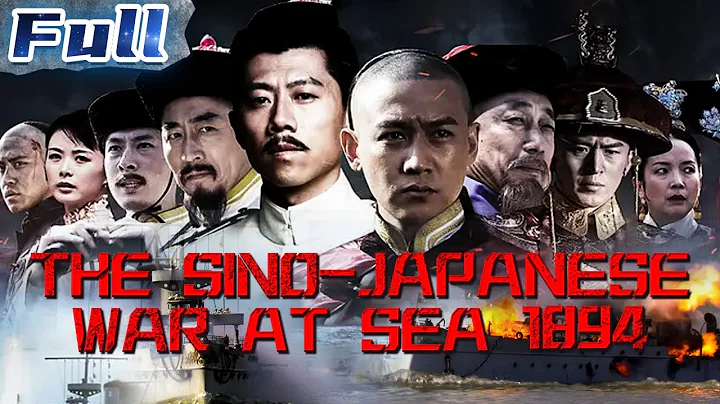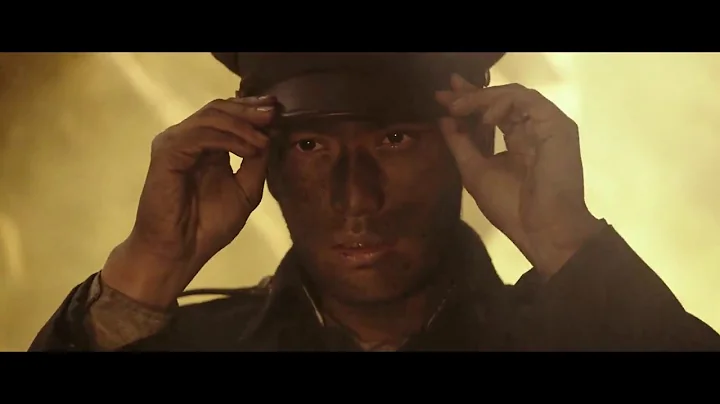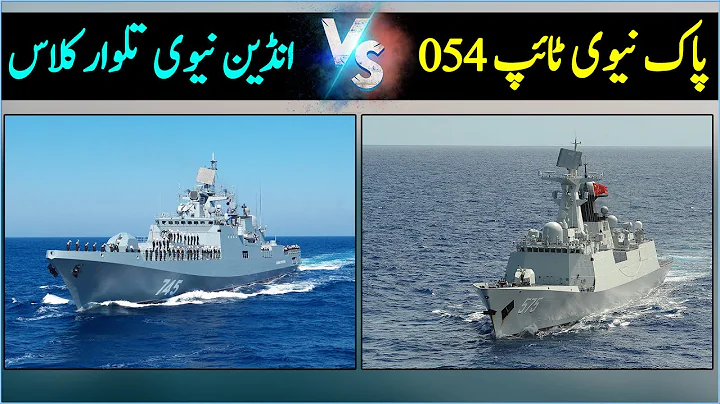Foreword:
Tang Shengzhi, courtesy name Meng Xiao, was born in Dong'an, Hunan in 1889. He studied in Changsha Army Primary School in his early years, and later transferred to the famous Hebei Baoding Military Academy. He and Chiang Kai-shek , Gu Zhutong , Chen Cheng were both classmates, and their principal at that time was the famous military educator Jiang Baili .
Tang Shengzhi experienced the War to Protect the Country, the War to Protect the Law, the Northern Expedition, the Anti-Japanese War, and the Liberation War. He participated in countless battles, large and small. However, the one that is most remembered is his arrival in November 1937. The defense battle of Nanjing commanded between December.
Nanjing was the capital of the Nationalist Government at the time, and its fall was linked to China's century-old national humiliation and national humiliation - another huge humiliation since the Qing Dynasty lost its capital Beijing to the invasion of the Eight-Power Allied Forces in 1900. The Nanjing Massacre, which was directly caused by the fall of Nanjing, has always been the greatest historical trauma and painful memory of our nation.

defend or abandon defense? Li Zongren : Tang Shengzhi volunteered to take advantage of the chaos to seize military power
On November 12, 1936, all of Shanghai fell. One day later, 15 Japanese warships entered the Yangtze River. The Japanese army divided into three groups and launched a fierce attack on Nanjing. , in an attempt to force the Nationalist Government to sign the "Alliance Under the City" and surrender to Japan.
At the special national defense meeting in mid-November, two views had a fierce confrontation. One view said: "Currently, the Japanese army is powerful, fighting spirit is high, and arrogance is high. In principle, we can only adopt the principle of abandoning defense against Nanjing." "If we want to defend, we can only use a few regiments of troops for symbolic defense, otherwise, the losses will be immeasurable."
He Yingqin's speech was recognized by most of the generals present.
Li Zongren’s suggestion was that instead of fighting hard with no chance of winning, “it would be better for us to declare Nanjing an undefended city, so as to prevent the enemy from using an excuse to burn and kill civilians.”
Bai Chongxi agreed with Li Zongren’s view. He said: “Nanjing is The capital designated by the Prime Minister is the location of the Prime Minister's Mausoleum and cannot be destroyed by military force because it is declared an undefended city."

Secretary-General of the Military Commission Zhang Qun added: "If our army voluntarily withdraws from Nanjing, the Japanese army will not capture it by force. , In the event of future peace talks, it cannot threaten me as a victor."
Including the German military adviser to China von Falkenhausen also advised Chiang Kai-shek: "Don't defend Nanjing, which is located in a dead bay of the Yangtze River. "
Judging from the military comparison and battlefield situation, the Japanese army directly attacked Nanjing with 100,000 troops, and most of them were well-trained veterans. They also had close cooperation with the navy and air force. There were new tanks, artillery and other heavy equipment on the ground. equipment.
Although the Chinese army had about 150,000 people participating in the war, its establishment was complex, and its training, weapons, and soldiers were obviously backward. According to some data, recruits accounted for 38% of the troops responsible for guarding Nanjing at that time.
It should be said that from the perspective of the objective battlefield situation and military and political strategies, their statements are not unreasonable. As a discussion of military strategy, they should not be simply attributed to "compromise" or "compromise". surrender".
Looking at the military history of China and the world, there is no shortage of examples of "regardless of the gains and losses of one city or one place" and winning the final battle, such as Yan'an during the Liberation War, Rugao and Hai'an . , Moscow during the Russo-French War. It can be seen that from purely military considerations, Nanjing can indeed be abandoned.

However, as the commander-in-chief of the Nationalist Government at that time, Chiang Kai-shek could not think about the problem only from a military perspective. Chiang Kai-shek believed: "Nanjing is the capital, which is anchored by international perspectives and has a major impact on the people of the country. It is impossible to not defend it completely."He wrote in his diary: "The isolated city of Nanjing cannot but be defended. It is extremely difficult to let go of the superiors, subordinates, country, and people."
Chiang Kai-shek believed that abandoning the capital and not defending it was not an option, but clinging to it was not the only way. The approach that can be adopted is "short-term persistence." In other words, the Kuomintang generals, including Chiang Kai-shek, believed that the fall of Nanjing was only a matter of time, or an expected event. Therefore, they did not plan the campaign. He did not regard permanent and long-term persistence in Nanjing as his campaign goal.
However, no one among the many generals of the Kuomintang dared to stand up for such a "short-term persistence" plan. Chiang Kai-shek said: "If no one is guarding it, I will guard it myself!" " Such words.
Under such circumstances, Tang Shengzhi stood up and said: "Nanjing is the location of the National Government and the tomb of former Prime Minister Sun Yat-sen. Only by defending Nanjing can we clarify our will and determination to resist the war and contain the enemy. Win the sympathy and support of people across the country and the world. "

"In the face of a formidable enemy, if we do not sacrifice one or two generals in Nanjing, we will be sorry for Sun Yat-sen's spirit in heaven and Chiang Kai-shek." He advocated "defending Nanjing and fighting the enemy to the end." "
After hearing this, Chiang Kai-shek nodded in praise and appointed Tang Shengzhi as the commander-in-chief of the Capital Garrison District on the spot.
When Li Zongren later wrote his memoirs, he said that the reason why Tang Shengzhi volunteered to defend Nanjing was actually just to take advantage of the chaos to seize military power. This conclusion is actually open to question. , First of all, if the troops guarding Nanjing can control the military power, why did no one else respond, and only one Tang Shengzhi stood up? Secondly, the troops guarding Nanjing include the Northwest Army, Northeast Army, etc., most of which are miscellaneous armies, which shows the gold content of this military power? In fact, it is not high.

Someone once pointed out that Tang Shengzhi stood up and pretended because he believed that the Japanese army would not really attack Nanjing. This view is not worth refuting, because no one who has a little understanding of the situation at that time would do such a thing. Judgment.
Tang Shengzhi made a command mistake, and an order led to the death of tens of thousands of soldiers.
Regardless of Tang Shengzhi’s motivation for volunteering, one fact cannot be erased, that is: the battle to defend Nanjing ended in a major failure, and Tang Shengzhi was There is an unshirkable responsibility for this great defeat.
Looking back at the entire battle to defend Nanjing, Tang Shengzhi, as the commander, actually implemented the strategy and tactics of "passive defense and passive attack".
The responsibilities of the various units defending the city were too wide. , and lack of deep deployment. On the surface, the defending troops are fully defensive, but in fact they are weak everywhere. The Japanese attack will naturally not be a full-scale attack. They only need to focus on one or a few points to defeat our entire defense line.

"Mao." "Selection" has something to say: "The army has lost the initiative and is forced to be in a passive position. This army has no freedom and is in danger of being eliminated and defeated.
Some Kuomintang generals know this truth, such as Xu Jiwu, commander of the 48th Division, and Xu Yuanquan, commander of the 2nd Army Corps. They all believe: "If the defense does not take the offensive, it cannot achieve its goal." "With balanced equipment, the enemy can attack at any time." Find our weaknesses. If our defensive position also becomes a focus and we take the opportunity to break its offensive and defensive plans, the ground will be exhausted." "We always stick to a certain line, without the ability to take the initiative, and will eventually be defeated. "
During the Nanjing Defense War, Ma Zhenqiang, deputy captain of the teaching corps and commander of the first brigade, Ma Weilong, commander of the third brigade, and Yang Houcan, commander of the engineering corps, jointly suggested to Tang Shengzhi that he could take advantage of the enemy's initiative to attack and concentrate on maneuvering. troops, took the initiative to attack the Japanese garrison, threaten the enemy's rear, and strive to take the initiative on the battlefield. However, this plan was ignored by Tang Shengzhi and Gui Yongqing.

The error in guiding ideology led to the inevitable failure of the entire campaign. In this regard, Tang Shengzhi, as the highest commander in this battle, has an unshirkable responsibility. As a military commander with many years of war experience and long-term military education General Tang Shengzhi's mistake is heartbreaking.
's inability to control the overall situation, ineffective orders, and poor communication were the second mistakes Tang Shengzhi made in this battle.
html In addition to being responsible for the defense of Wulong Mountain, the 348th Division was also responsible for the defense of the front line from Heshangzhuang to Yangfangshan. According to the deployment, the defense task of Yangfangshan belonged to the teaching corps, but the teaching corps never arrived, so the 48th Division had to divide its troops to deploy defenses. ; When the battle reached its climax, some troops retreated without authorization; on December 12, Tang Shengzhi ordered the Second Army to retreat, but the order to retreat was not delivered. After the Second Army Corps's request for help telegram was sent, they were unable to contact the headquarters until night...
The troops were fighting independently, and the headquarters was unable to coordinate the overall situation and control the development of the battle. It should be said that Tang Shengzhi, as the supreme commander, had no control over the situation. This bears direct and unshirkable responsibility.

Tang Shengzhi lacked effective organization of various battlefield units. This mistake was not only reflected in the battle, but also during the retreat.
Initially, considering the problem of too many people and few ships, Tang Shengzhi formulated a retreat plan of "most of them break out of the encirclement and some of them cross the river". However, when issuing the retreat order, he added an additional order: "87D, 78D, If the 74A teaching column cannot all break through, when there is a ferry, it can cross the river and assemble in Chuzhou." The additional command
opened a very bad hole and made an obvious and irreparable mistake. With this additional order from him, many of the troops originally scheduled to break out of the encirclement swarmed to the riverside, and finally about 9 divisions gathered. Due to the shortage of ferries, soldiers were rushing to cross the river. Soldiers who had not yet boarded the boats fired at those who had already boarded. Some boats sank in the river due to severe overloading. There were also many officers and soldiers who tore down store doors and used them as ferries to cross the river. "Thousands of them were submerged in the river."

According to Song Xilian's recollection, after he crossed the river and looked at the other side, he could only hear the sound of wailing across the river. It was so miserable that he had no choice but to cry sadly.
In the end, only 4,000 soldiers successfully crossed the river. Tens of thousands of soldiers who failed to cross the river were later brutally killed by the Japanese army...
In this battle, the losses of troops caused by improper retreat and transfer have far exceeded The losses incurred by the troops in the battle to defend the city. This is undoubtedly the most embarrassing place in the entire battle to defend Nanjing.
Why was the Battle of Nanjing a huge failure?
As mentioned earlier, the Nanjing Defense War was not originally aimed at permanently defending Nanjing, so the loss of Nanjing should not be used as the basis for judging the failure of the entire campaign. There are three main reasons for judging the Nanjing Defense War to be a failure:
First, the enemy we can defeat in this battle is limited.
The third article of the "Ten Military Principles" proposed by Mao Zedong clearly states: "The main goal is to annihilate the enemy's effective forces, not to defend or capture cities and places. To defend or capture cities and places is the result of annihilating the enemy's effective forces. , it often takes many repetitions to finally defend or capture it. "

Since the Nationalist Government has made it clear that Nanjing does not need to be defended for a long time, annihilating the effective forces of the Japanese army should undoubtedly be the most important strategic goal in the battle to defend Nanjing.
According to estimates by military historians, the number of Chinese troops killed in the Battle of Nanjing was 10,000, which only accounted for 1/10 of the total force of the Japanese army attacking Nanjing. Such casualty figures were completely acceptable to the Japanese side and were not affect their subsequent offense. The contribution of the Battle of Nanjing to the subsequent war can be said to be minimal.
Second, this battle suffered heavy losses.
Mao Zedong famously said: "If people save people, they will lose their land, and everyone and land will survive; if they save land and lose people, everyone will lose their land."Since it is impossible to effectively annihilate the enemy's effective forces, and since Nanjing must be lost, "saving people" is the best strategy. But unfortunately, in this regard, the commanders headed by Tang Shengzhi also did a poor job.

It is estimated that the total losses of various troops in the Nanjing Defense War were about 100,000 people, and most of these 100,000 people were brutally killed when they no longer caused damage to the Japanese army.
Third, this battle fails too quickly.
The Anti-Japanese War was an unequal war between an agricultural country and an industrialized country. In the face of such a war, protracted war was undoubtedly the key to victory. exchanges space for time, is acceptable, but the problem is how much time we have exchanged for the space in Nanjing.
On December 1, Hirohito approved the "Mainland Order No. 8" and officially issued the order to attack Nanjing. Ten days later, the Japanese army broke through Nanjing's peripheral positions and reached the suburbs of Nanjing. On December 9, the commander of the Japanese Central Front Matsui Iwane dropped the "Surrender Advice" into Nanjing from a plane. He threatened: "If your army wants to continue fighting, Nanjing will inevitably suffer the scourge of war, which will turn a thousand-year-old culture into ruins." Ashes, ten years of operation finally turned into a bubble..."

html In the early morning of the 310th, Akira Muto, deputy chief of staff of the Japanese Central Front, led his men to wait for the national army negotiators on the outskirts of Nanjing, but until the morning, they could not wait for anyone to come. The Japanese army obviously underestimated the courage of the soldiers who defended the city. The soldiers who defended the city were determined to fight to the death. However, only 3 or 4 days later, the city of Nanjing fell.
The Nationalist Government established the Nanjing Garrison on November 25, and the fall of Nanjing City was on December 13. In other words, the Nanjing Garrison's defense only lasted 18 days.
This 18 days means that the Nanjing garrison did not buy enough time for the national war situation, and did not buy the friendly forces time to arrange the battlefield and time to rest and reorganize the troops. This can be said to be another failure in the battle to defend Nanjing.
How do you evaluate Tang Shengzhi?
Before the Nanjing Defense War, the Kuomintang generals already knew that Nanjing was a desperate situation. The enemy could encircle it from the east, south and west. To the north of Nanjing was the surging Yangtze River. Fighting with its back against the water, there was no way to retreat. The enemy could It is undoubtedly unrealistic to use the navy to blockade the Nanjing garrison, which is already at a disadvantage, to defend this place for a long time. But that doesn't mean the defenders couldn't do better in other ways.

Of course, because of the failure of the Nanjing defense battle, we cannot ignore the heroic spirit displayed by the Nanjing defenders in this battle, and their bravery in killing the enemy and defending the city to the death.
As far as Tang Shengzhi is concerned, he has made meritorious service in defending the territory against the enemy, but has made mistakes in command. Tang Shengzhi promised Chiang Kai-shek before the war that he would "never retreat without the commander-in-chief's order," and he did so.
It should be said that the failure of the Battle of Nanjing was caused by many reasons. It is unfair to simply attribute the failure of this battle to Tang Shengzhi's command error. Tang Shengzhi dared to stand up and take responsibility when the country was in crisis. His patriotism and military responsibility are worthy of recognition.

Instead of pointing the finger at a general who dared to stand up and command a war that was doomed to fail, we should hold accountable the Japanese aggressors who brutally launched the war. Rather than blaming the victim, it is better to denounce the perpetrator, which blurs the focus of the issue.
In 1981, the central government commissioned the Hunan Provincial Party Committee to hold a new memorial service for Tang Shengzhi, and affirmed Tang Shengzhi’s spirit of patriotism, love for the people, and pursuit of truth during his lifetime. Soon after, the Hunan Provincial Party Committee listed his former residence as a provincial cultural relics protection unit and a patriotic education institution. base.






![The Fall of Emperor Yuan Shih-kai [Eng Sub] 蔡锷北伐袁世凯 - DayDayNews](https://i.ytimg.com/vi/oD-eJJrOBKE/hq720.jpg?sqp=-oaymwEcCNAFEJQDSFXyq4qpAw4IARUAAIhCGAFwAcABBg==&rs=AOn4CLBYxwGiLYHlCD13YEpLZOK0GgeD4A)














